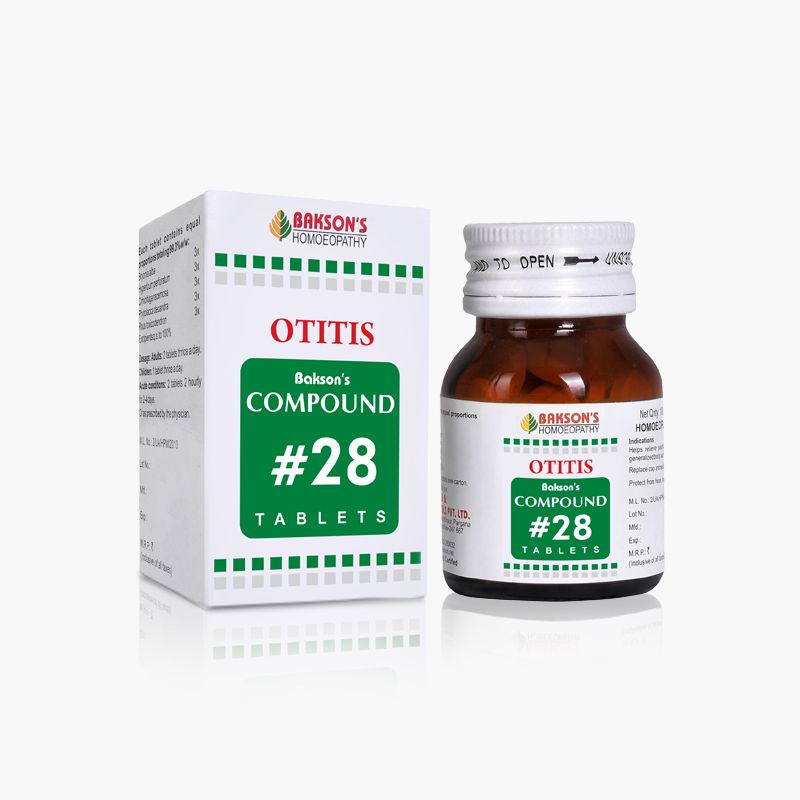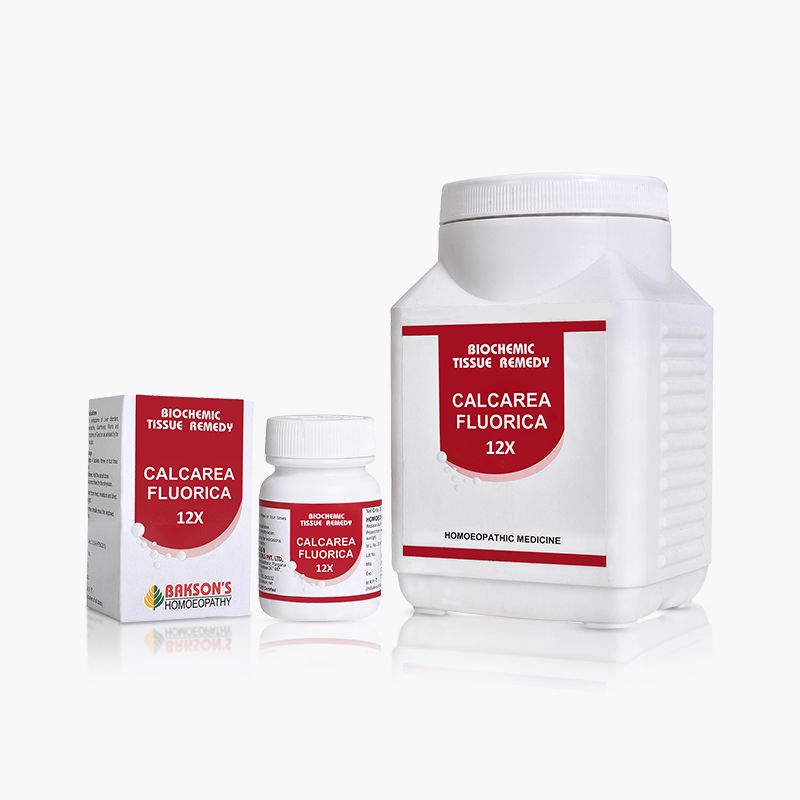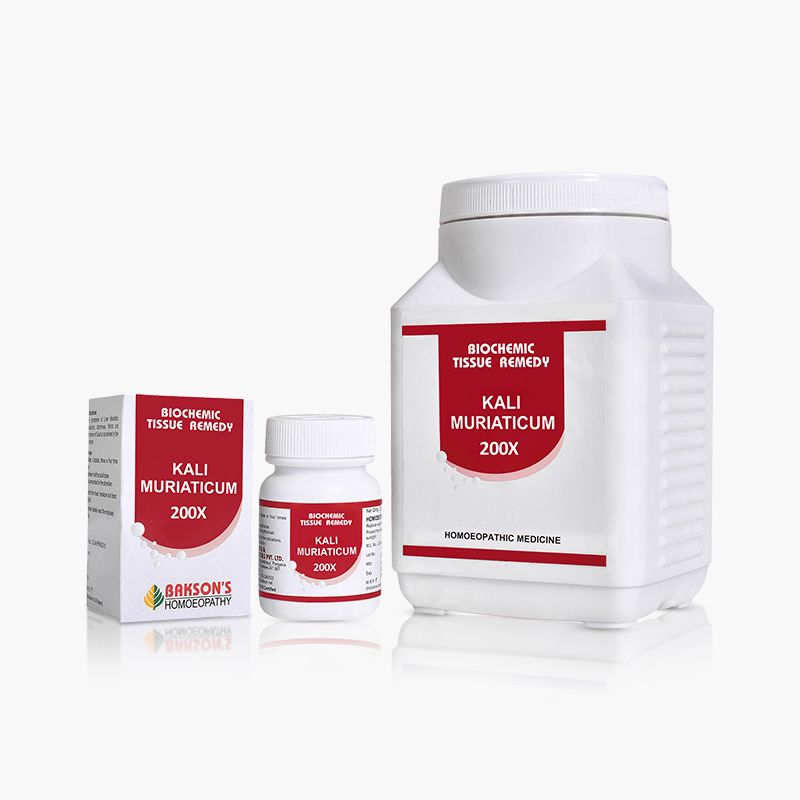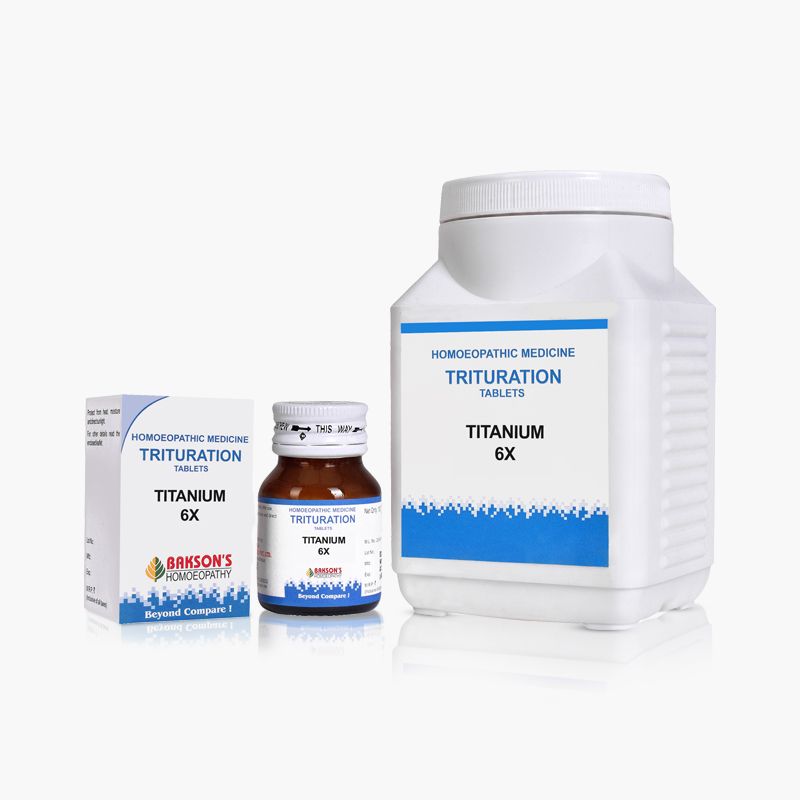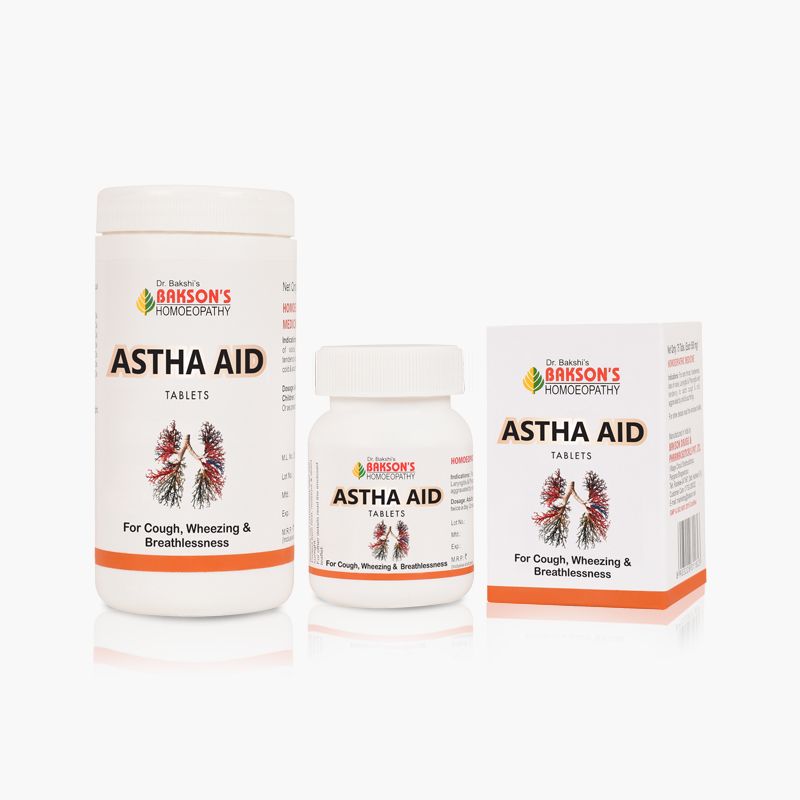We use cookies to make your experience better. To comply with the new e-Privacy directive, we need to ask for your consent to set the cookies. Learn more.
COMPOUND #28 TABLETS-100TABS
Otitis is a term used for inflammation or infection of the ear which is distinguished as Otitis externa, Otitis Media and Otitis Interna.
Composition: Hepar sulphuris calcareum 3x, Pulsatilla nigricans 3x, Silicea 3x.
Indications: Helps relieve catarrhal otitis associated with earache, purulent discharge and consequent hardness of hearing.
Dosage: Adults: 2 tablets thrice a day. Children: 1 tablet thrice a day. Acute condition: 2 tablets 2 hourly for 2-4 days. Or as prescribed by the physician.
Contra-indication: None
Side effects: No known side effects
Expiry: 5 years from the date of manufacturing.
Manufactured in India by: Bakson Drugs & Pharmaceuticals Pvt. Ltd.
Disclaimer: The information provided herein on request, is not to be taken as a replacement for medical advice or diagnosis or treatment of any medical condition. DO NOT SELF MEDICATE. PLEASE CONSULT YOUR PHYSICIAN FOR PROPER DIAGNOSIS AND PRESCRIPTION.
1) OTITIS EXTERNA It is the inflammation of external auditory canal which can extend to the outer ear as well. It can be acute, lasting for less than 6 weeks or chronic which lasts more than 3 months. It is also known as swimmer’s ear as it occurs commonly during summer and in tropical climates. Causes include bacterial infection, allergy, eczema and psoriasis. It is manifested by itching and pain in ear, otorrhoea, fullness sensation and hearing loss. 2) OTITIS MEDIA Acute Otitis Media It is an acute infection of the middle ear, most commonly seen in children between the age of 6 to 24 months. This infection can be viral, bacterial or coinfection. Symptoms include pulling or tugging at ears, irritability, headache, disturbed or restless sleep, poor feeding, anorexia, vomiting or diarrhoea and low grade fever in 2/3rd cases. Chronic Suppurative Otitis Media It is a chronic inflammation of middle ear and/or mastoid cavity where the tympanic membrane is ruptured. It is characterized by a persistent otorrhoea over 2-6 weeks through a perforated tympanic membrane, hearing loss, tinnitus and aural fullness. Causes include viral or bacterial infection. Otitis Media with Effusion It is a condition in which there is presence of fluid in the middle ear without any signs of acute infection. The fluid puts pressure on the tympanic membrane and prevents it from vibrating properly and hence, decreases the sound conduction resulting in hearing deficit. Other symptoms include otalgia, which is intermittent, difficulty in communication, lack of attention and withdrawal. There may be tinnitus and foreign body sensation in adults. 3) OTITIS INTERNA It is the inflammation of inner ear, commonly known as labyrinthitis. It is characterized by symptoms of vertigo, dizziness and ringing in ears. There may be associated earache and hearing loss. Diagnosis: Diagnosis of otitis is based on clinical features, ear examination signs and otoscopic findings. Action of Ingredients: Hepar sulphuris calcareum: Indicated in Otitis media which is painful. Ears are sensitive to touch and wind. Discharge of fetid pus from the ears. Pustules in auditory canal and auricle. Indicated for Mastoiditis. Whizzing and throbbing in ears with hardness of hearing. Roaring in ears and deafness from Eustachian catarrh after scarlet fever. Pulsatilla: External ear swollen and red. Lobes of ear swollen. Catarrhal otitis media. Ear infections, worse at night. Otorrhea, with discharge of pus, blood, thick yellow humor, which is offensive, occurring after exanthemata. Threatened ulceration and perforation of tympanum. Itching deep in ears and severe earache, not better by warm applications. Earaches which are worse at night. Sensation as if something were being forced outward from the ear. Hearing difficult, deafness, as if ears were stopped up. Silicea: Indicated for Earaches, Abscess, Boils. Otorrhoea with fetid discharge. Crusty formations in ears and Perforated eardrum. Itching in ears when swallowing and itching of outer ears. Shooting pain in left ear. Feeling of stoppage in the ear, better when yawning or swallowing. Decay of mastoid process. Sensitive to noise. Indicated for Meniere's disease. |




